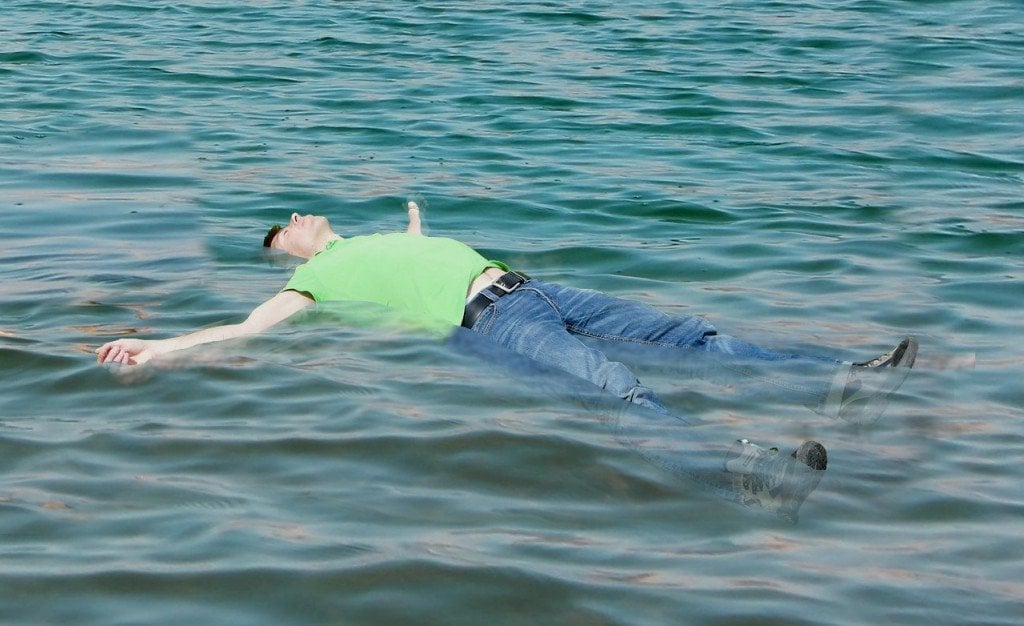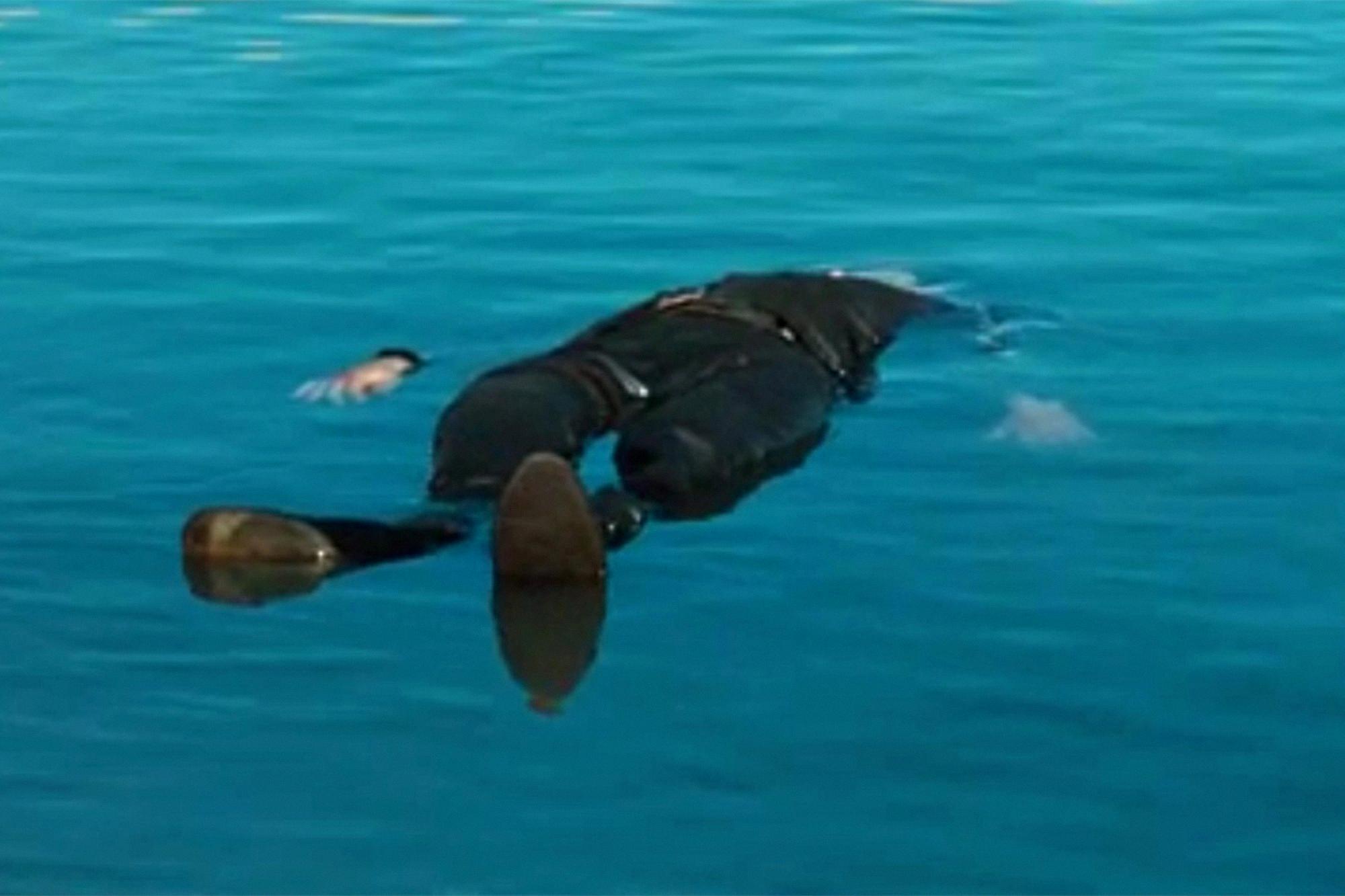Have you ever wondered if dead bodies float? The answer is yes, they do. But it’s not as simple as it may seem. There are various factors that determine whether a body will float or sink, such as the weight of the body, the temperature of the water, and the presence of gases in the body.
When a body is first submerged in water, it will sink due to its weight. However, as time passes, the body will start to produce gas due to the bacteria that is present in it. This gas production causes the body to become less dense and eventually, it will float to the surface.
The time it takes for a body to float depends on its weight and the temperature of the water. Heavier bodies will take longer to float than lighter ones. Similarly, bodies submerged in colder water will take longer to float than those in warmer water. This is because bacteria grow faster in warm water, which leads to faster gas production.
Once a body floats to the surface, it is exposed to various elements such as sea birds and waves, which can cause it to dismember. This process can take anywhere from a few days to a couple of weeks. Eventually, the bones will sink to the seabed, where they will decompose over time.
It’s important to note that while most bodies will eventually float to the surface, there are some exceptions. Bodies that have been weighed down or tied to an object may not float at all. Additionally, bodies that have been in the water for a long time may have aleady decomposed to the point where they are too heavy to float.
Dead bodies can float due to the production of gases within them. The time it takes for a body to float depends on various factors, such as its weight and the temperature of the water. While most bodies will eventually float to the surface, there are some exceptions. It’s important to understand these factors when considering the fate of bodies that have been submerged in water.
Time Required for a Dead Body to Float
When a body dies and enters the water, it will typically sink due to the weight of the body and the air trapped inside the lungs. However, after three or four days, the gases produced by the process of decomposition will cause the body to bcome buoyant, and it will float to the surface. This process can be affected by several factors, such as the water temperature, the depth of the water, and the presence of clothing or other objects that may weigh the body down. Once the body is floating on the surface, it is exposed to the elements, such as sea birds and waves, and will continue to decompose and break down. This process can take a week or two, during which time scavenging creatures will dismember the corpse, and the bones will eventually sink to the seabed.

The Causes of a Dead Body Floating
When a body is submerged in water, bacteria in the body start to break down the tissues, whih produces gases such as methane, hydrogen, and carbon dioxide. These gases accumulate in various organs and cavities in the body, causing it to become buoyant and eventually float to the surface. The amount of gas produced is dependent on several factors such as the temperature of the water, the type of bacteria present, and the size of the person. Warmer water temperatures can accelerate the production of gas, making the body float faster. It is worth noting that the time it takes for a body to float varies widely, and some bodies may never float due to several factors such as body weight and the presence of clothing or other objects that can cause the body to sink.
The Reason Why Eyes Open at Death
When a person dies, their body undergoes various changes, including the cessation of muscle function. The muscles that control the eyelids also stop working at this point. As a result, the eyelids may pop open due to the loss of muscle tone. This phenomenon is known as postmortem lid retraction or cadaveric spasm.
It is important to note that this is not a universal occurrence, and not all deceased individuals will experience this phenomenon. Several factors, including the cause of death, the position of the body, and the time elapsed since death, can all affect whether or not the eyes open at death. Additionally, in some cases, the eyes may appear open due to changes in the face and jaw muscles as they relax ater death.
In summary, the opening of the eyes at death is a natural result of the loss of muscle function that occurs in the body after death. While it is not a universal occurrence, it is a common phenomenon that is well-documented by medical professionals.
The Possibility of Post-Mortem Movement
Yes, bodies can move after death. A study conducted at Australia’s fist ‘body farm’ revealed that corpses can move during the decay process. The researchers found that movement occurred in all limbs after death, including in the advanced decomposition stages. This movement is more than just a twitch and can be observed in different positions and angles. The exact reason for this movement is not fully understood, but it is believed to be caused by the release of gases and the breakdown of tissues in the body. It’s important to note, however, that this movement does not indicate that the person is alive or conscious in any way.
The Length of Time it Takes for a Body to Sink
The time it takes for a body to sink depends on a variety of factors, such as the body’s size and weight, the type of water it is in, and whether the body is wearing clothing or other items that could affect its buoyancy. Generally speaking, a human body will typically sink within a few seconds to a minute after entering the water. However, some factors such as the presence of air in the lungs, can cause the body to float for a short time befoe eventually sinking. It is also worth noting that certain conditions, such as water temperature and the presence of currents, can affect the sinking process. Overall, while there is no exact time frame for how long it takes a body to sink, it typically happens relatively quickly within a matter of seconds or minutes.

Source: ew.com
The Effects of Drowning on the Human Body
When a body is recovered from water after drowning, thre are several typical postmortem changes that can be observed. The body may be covered in mud and debris, and the skin of the hands and feet may have sloughed off due to prolonged exposure to water. Additionally, drowning victims often have fluid collections in the pleural cavities at autopsy, which is the space between the lungs and chest wall.
It’s important to note that these postmortem changes can occur regardless of the postmortem interval, which is the time between the person’s death and the discovery of their body. Other factors such as the temperature and depth of the water can also affect the appearance of the body.
Overall, bodies recovered from drowning can have distinct physical characteristics that may help forensic experts determine the cause of death.
Do Dogs Sink or Float When They Drown?
Yes, dogs can sink when they drown. This is especially true for flat-nosed breeds, as they have lower breathing capacity and can run out of breath quickly. While some breeds, such as Labradors, are excellent swimmers, others may struggle to stay afloat if they are not trained or equipped with a flotation device. When a dog drowns, their lungs fill with water and they lose buoyancy, which can cause them to sink to the bottom of a body of water. Therefore, it is important to always supervise dogs around water and provide proper safety measures to prevent drowning.
Conclusion
In conclusion, dead bodies do float in water due to the gas produced by bacteria in the body. The length of time it takes for a body to float to the surface depends on factors such as weight, clothing, and water temperature. Once on the surface, the body is exposed to sea birds and waves, and will eventually be dismembered by scavenging creatures and sink to the seabed. It is important to note that while the floating of a dead body may seem morbid, it can provide crucial information for forensic investigations and search and rescue operations.
